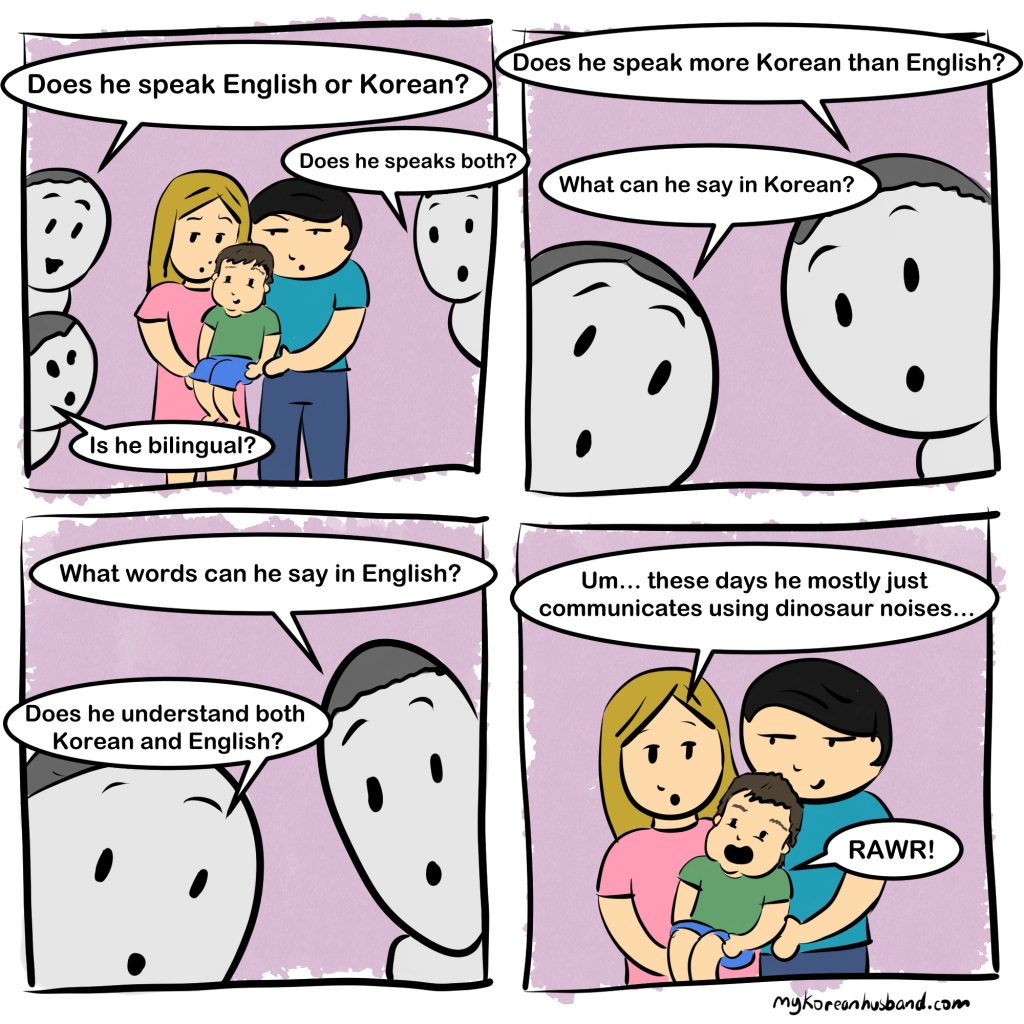Raising a bilingual child
People are very curious about if our son Yul is learning both English and Korean, so we get a lot of questions. He is learning English and Korean both simultaneously. I mostly speak English to him while Hugh speaks Korean to him, but we also switch languages or repeat the same thing in the other language.
Yul is aware that there are two different languages and understands both. Well, as much as 20 month old toddler can understand. He does speak some words as well, mostly Korean but a few English words too.
We do get A LOT of questions about raising him bilingual. I understand that people are very curious, but he is going through a dinosaur phase where sometimes he’d rather roar like a dinosaur, than say anything. I’m sad that later in life he’ll discover that new dinosaur research suggests that dinosaurs probably honked like geese instead of roaring.
An old fashioned idea that still goes around is that being bilingual will be too confusing for him. Or that he should just focus on one language first. But we know that being bilingual has incredible benefits for him and the research supports us too. But sometimes I can see that people have their own misconceptions about it. For example, sometimes Korean people will try to speak in English to him, but we’ll say “Please speak Korean to him as that’s your native language and he understands it”. But then they will ask him something and expect him to reply! He’s too young! For example, they’ll ask, “How old are you?” He is too young to articulate that yet. But then the person will try to switch back to English, thinking Yul knows no Korean.
We’ve realised as parents, how little people in general understand about child development. Yul also does look a bit older than he is, so people expect him to be speaking full sentences. He says a bunch of words, but it doesn’t mean he is going to respond to your questions! Even when he was 6 months old we had people asking if he spoke English or Korean!
Another aspect of raising a bilingual child is that monolingual people can make judgements on how many words a child knows and perhaps criticize how few they know in their language. But actually a bilingual child usually has the same amount of words as other monolingual children at that age, but they are spread across 2 languages. For example, Yul may say about 10 words in Korean, while Korean kids a similar age are saying 15 or more. BUT, Yul is also saying 5 or 6 words in English which brings the total of words he knows up to a normal level. But only people who are speaking both English and Korean can see the amount of words he knows.
Yul is in a great environment for learning both languages at the same time. If we were in Australia we’d have to make a much bigger effort speaking Korean at home. But since we live in Korea, he hears Korean from Hugh, hears Korean at daycare and just being out in society. And then because English learning is considered so important in Korea, lots of TV shows and toys are switching between Korean and English. His electronic toys all have both Korean and English options and on kids channel they will have English segments. From an early age it’s easy for him to identify the two different languages and that he can switch between them depending on the situation.
Studies done on bilingual children have shown how good it is for the brain to know two or more languages. Bilingual children also tend to have a higher level of empathy as before they speak to someone they evaluate the situation, who the person is, and decide which language to use.
I’m sure I’ll have many more comics about being bilingual in the future!


Recent Comments